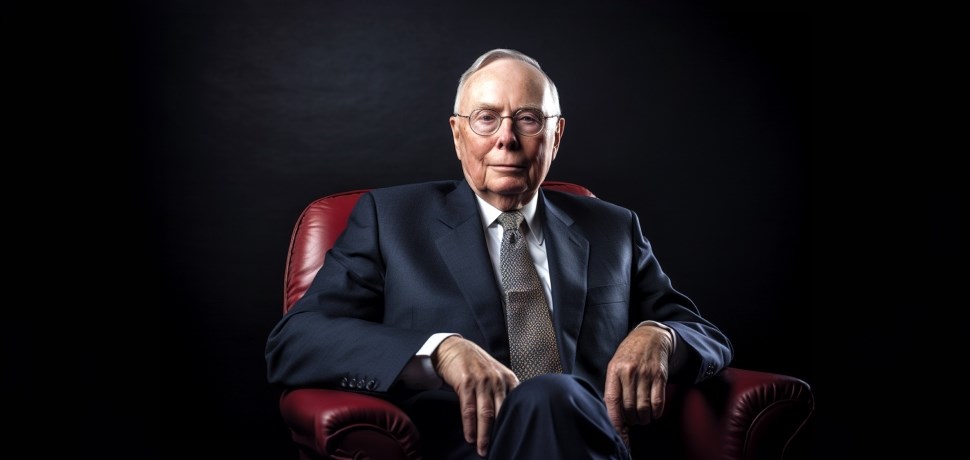Mastering the High Road: Charlie Munger's Lessons for a Modern World
David Shapiro reflects on the profound impact of Charlie Munger's timeless wisdom, urging a return to old-school values in a world marked by complexity and moral ambiguity.

I had promised myself that I would not write another article on reflections from my numerous visits to Omaha, attending the Berkshire Hathaway Annual Shareholders’ meetings. Yet reading Warren Buffett’s touching tribute to his friend, mentor and long-time business partner, Charlie Munger, I was moved to pay homage to a man whom Buffett affectionately referred to as being “Old Testament”. The thought of seeing Buffett, alone on stage, without Charlie peering through his fish-bowl-lensed spectacles, eating peanut brittle, and drinking Coca Cola, left me with a deep sense of sorrow and loss.
Charlie made a telling impression on me. So much of what I do and say today is influenced by his nuggets of wisdom and virtuous take on life. He would repeatedly brush aside audience worship of Berkshire’s achievements explaining it wasn’t his and Warren’s brilliance that led to their success, rather that they just avoided doing anything stupid. “The downfall of most businesses is a result of management being drawn into stupid decisions.”
Charlie was uncompromising when it came to corporate governance and good behaviour. He believed it was necessary to learn sound financial habits early in life and encouraged parents to begin educating their children in elementary school, long before they entered college. His views on crypto currencies are well documented, but he was equally scornful of derivative instruments and products, blaming much of the past mayhem in financial markets on business schools that taught students how to value options rather than understand what made a good business. “If they never had weather derivatives”, he would bemoan, “corn and wheat would still grow.”
Charlie was a big supporter of McDonalds, where he said “very ordinary people are taught the basics of business – punctuality, responsibility, and customer service. You’re lucky if you have parents who can teach you these disciplines.”
Charlie’s contempt wasn’t confined to business schools. He was equally derogatory about bankers, brokers, and accountants. He had little respect for the standards imposed by accountants. Financial statements should illuminate not obfuscate; he would decry. So many accountants misrepresent the true picture of a company’s state of affairs. They are easily malleable and acquiesce to the demands of their clients.
Yet, as Buffett pointed out in praise of his friend, it was Charlie who convinced him that the universe of value investments that Benjamin Graham tracked had dried up, and that he had to change direction, buying instead wonderful companies with durable competitive advantages. It was Charlie who convinced Buffett to buy into Chinese battery maker - and now electric vehicle manufacturer - BYD in 2008 and into railroad company, BNSF in 2009.
Charlie liked to keep things simple, advising those around him to know what they were good at, and to stick to just that. He warned young investors that if they were not willing to read about a business for hours, they should not dabble in it. And just because everyone else was doing it, it didn’t mean it was not incredibly stupid.
In a world where a former - and possibly the next - President of the United States is facing criminal charges for paying hush money to a former porno star, Charlie’s old-school values were refreshing. As he and Buffett advocated to their devoted followers, “Take the high road. There’s not much traffic up there.”